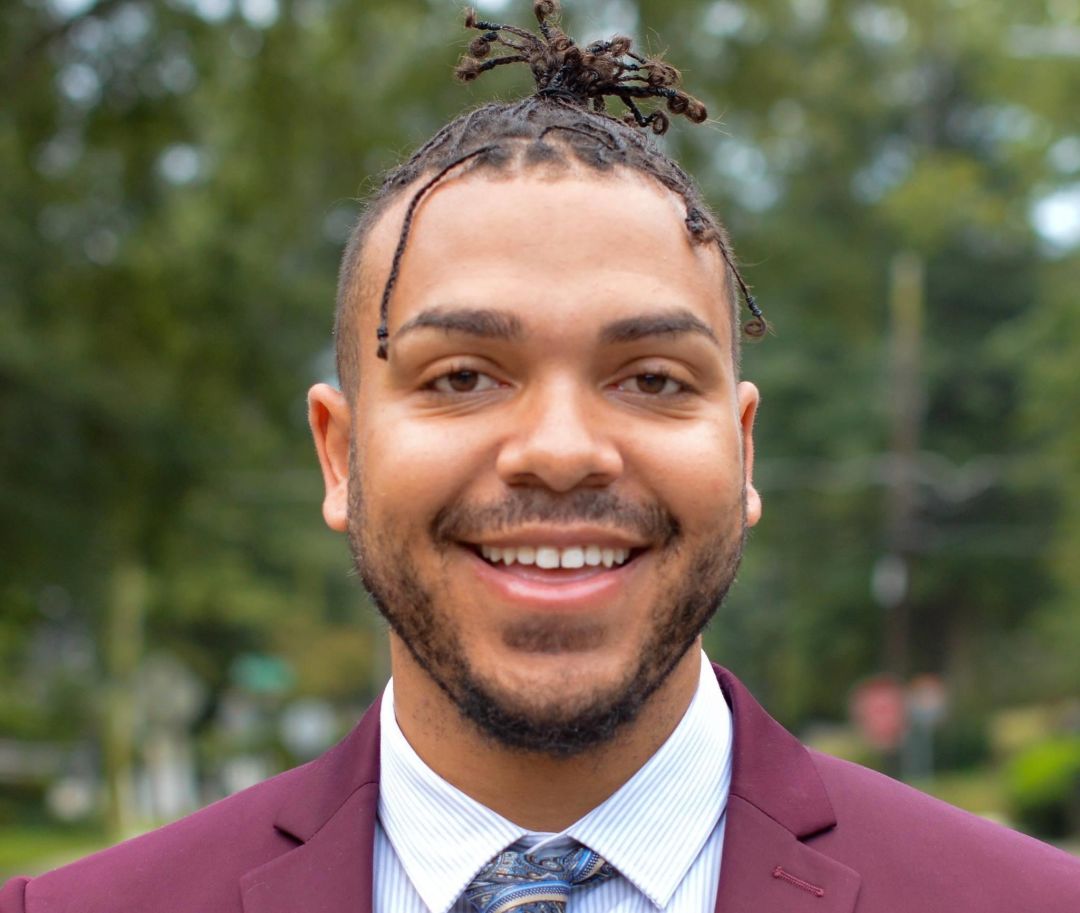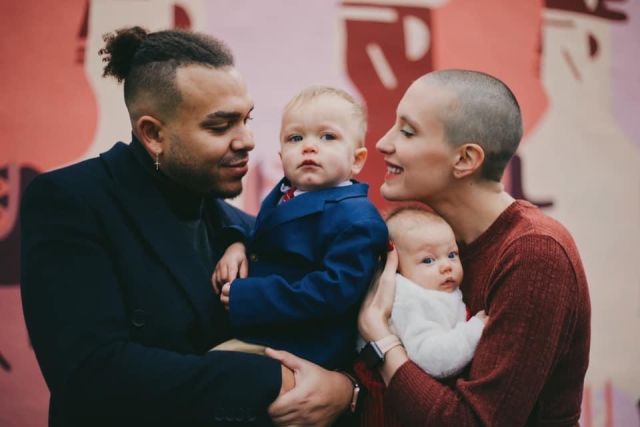After a Close-but-Not-Quite Mayor's Race, What’s Next for Political Whiz Gregory McKelvey?

Image: Courtesy Gregory McKelvey
If you’re on Portland Twitter, chances are you already know Gregory McKelvey, or even number yourself among his more than 26,000 followers.
A primer if you don't: He’s a 27-year-old Portland-born-and-raised political science major who then studied law at Lewis and Clark, and most recently ran mayoral candidate Sarah Iannarone’s campaign, taking on an incumbent mayor with deep pockets during a pandemic that upended the traditional door-knocking get-out-the-vote model.
The Iannarone campaign pushed Wheeler to a run-off before the mayor ultimately prevailed, taking office with some 46 percent of the votes to her 41 percent. (With 13 percent of the vote going to write-ins, some political observers point the finger at the campaign to write in activist and Don't Shoot Portland founder Teressa Raiford as having siphoned off some of Iannarone’s potential votes. Raiford has refuted that charge.)
McKelvey had previously worked on Anne Schuster’s successful 2014 campaign for Benton County Commissioner, and ran Xan Augerot's primary campaign in 2016—she also went on to a Benton County Commissioner seat. He also ran Green Party candidate James Ofsink's State Senate Campaign in 2016. Fresh from his latest political foray, McKelvey admits there are things he’d do differently in retrospect, in particular, shifting earlier from negative campaigning: “We felt like we still had a little bit of work to chip away at [Wheeler's] support, and I think looking back, we didn't, and we should have just got to building more for Sarah.”
Yet, though losing clearly stings, McKelvey’s campaign savvy has marked him as a potent local political force. He’s the Vice-Chair of Oregon Democrats’ Black Caucus and Board President of newly minted nonprofit Brown Hope, headed by former mayoral and Metro candidate Cameron Whitten. It seems like McKelvey could go anywhere from here, but he’s committed to staying and raising his two small kids in Portland with his wife Kat McKelvey, a prominent activist and anti-Trump organizer. So, what’s next?
I know it’s early to ask this, but have you put some thought into where you want to go from here?
Four years ago, I was considered basically, an activist, I was getting beat out of City Hall by police. And then four years later, I almost begged my way into City Hall. So in four years, I think on that trajectory I'll be king!
Or mayor?
Ha, no. I want to keep basically doing what I did the past year and a half, which is just to think about how to build power for progressive causes in Portland, and chip away at what I think has been a stranglehold on politics in Portland, Oregon, by the same people for a long time. And I think if we can just loosen that grip a bit, this city can be what our people really want it to be and can be an example to the rest of the country of what a progressive city can look like.
In what way?
I think we have this outsized reputation as not just being weird, but being progressive. We want to be weird, but we want to be innovative and we want to be progressive and we want it to all happen in a way that helps the most marginalized people in our communities. And for that to happen, we're gonna need people who work hard behind the scenes to chip away at the things that have prevented us from being that. Portland really earned its reputation of being progressive at a time where us having a mayor that said, ‘Yeah, I think two gay people should be able to get married’ was seen as progressive. And our politicians have stayed at that level of progressive, while the rest of the country has moved way past that. We're still cashing in that check from 2000. And there's a lot of opportunity cost there, when we're not living up to our reputation, because we could be an example for the rest of the nation. There are a lot of things that Portland has led the country on—or been close to leading the country on—like the end of marijuana prohibition or now the decriminalization of drugs, and we can lead on a lot of things like voting reform, like ranked-choice voting, like opening up the ballot for undocumented immigrants. Things like that, I think, are within our reach, and the way that works in our country, just like marriage equality, is it falls in one state and in another state and another state, and it's like a domino effect. When we have this reputation as progressive, we're supposed to be the first domino and because this first domino never falls, there's a lot of opportunity cost for the rest of the nation. That’s why I think Portland is uniquely positioned to be that example. But to do that, there are these giants we have to slay first.
So where does that put you professionally?
Stacey Abrams lost an election in 2018 and then saved the world after by helping solve or address the issue that defeated her. So we can look at why did this race not go the way we wanted it to? In large part due to money in the Super PAC was against us—someone who did not get the majority of votes still got to be mayor. So you know, [Sarah Iannarone] could do something similar to Stacey Abrams, and work on the issues that were why she didn't win her election. I think there's opportunity for PACs in that realm. And there's always going to be consulting work on political strategy once you sort of prove that you can be a strategic mind, and I think I’ve done that.
Was politics always where you thought you’d be?
I’ve been really fascinated with politics the way people think about sports. The presidential debates are like the Super Bowls for me. Since I've been a kid, I'm just really interested in the strategy of it, and why politicians say what they do.
I’m so fascinated with the Republicans and what they've been able to do, and I read a lot about it…. They have utilized a lot of things the left first invented in the 60s, and used them so much more effectively than we have. Because you know, how the right thinks that Joe Biden's like beholden to Antifa. On the right wing, the politicians at the highest level, like George Bush really was an ally for the hard right—while I'm sure they have disdain for the working class of their party. On the left, or at least what the country considers to be the left, there is a disconnect between those in power—Ted Wheeler and Joe Biden, those who are able to rise through the ranks—there’s a disconnect between them, and the people who are driving the conversation forward. That doesn't exist to the same extent on the right. If we could dismantle that, I think, you know, you can always learn lessons from your enemies. I spend way more time listening to like, Lars Larson, Alex Jones, and Fox News and stuff, than listening to the left, because I find it so interesting.
You mentioned you’d been kicked out of City Hall in the past as an activist? What happened there?

McKelvey with his wife Kat, and their two children.
Image: Courtesy Gregory McKelvey
That issue was specifically the police union contract of 2016, where we were protesting it at City Hall, and police kicked us out of City Hall. And so that fight was a really big moment for our city, because a lot of people didn't think or talk about the police union contract before 2016. That moment, when they rushed through that contract with no accountability, was the day that Jo Ann Hardesty decided to run for city council, as well. So I think that was a big move for our city. That was when I was first really engaging with City Hall, with the commissioners, where I would be at City Council hearings in the front row. I was a kid—22 or 23—and I did things that I would absolutely never do today, like protest at the mayor's house. But the experience and things that I learned, are then brought into this political sphere that no one else working in this field really has. I can't necessarily reason with every activist, but I understand activists. I think there's a lot of potential in my career and in our city to fuse activism and politics. They talk about a lot of the same things.
With that said, how do you feel about the future of the Black Lives Matter movement?
I mean, we had so much opportunity, right when the uprising started when Rose City Justice was having massive marches of 10,000 people and Damian Lillard was there, I think our city was really at a crossroads. And those mass movements have sort of been dismantled by our own hypocrisy. So I support all protesters and protest, but I just thought there was a lot of potential in the beginning of this uprising that we never realized. So I think someone's going to get shot in Portland, at some point, someone's going to get shot nationally. And this will all redo itself, as it has for hundreds of years. And as long as we continue to learn from the lessons of the past, I think there will be more opportunity for our protests to grow. But I had much more hope for where I thought this was going where it started than where we ended.
How do we chart a better path?
So every time something happens, new people come, who are the most inspired by whatever has occurred and, they become the leaders of that time. And I think that that is how it should work. The problem is what we have not done a good job of is the people who did it before relinquishing their roles to those people, but also teaching those people so we don't have to continue to reinvent the wheel. And I think that we all have short memories. I wish our entire city would have learned from previous protests or protest movements more than we have. And I wish we didn't have to wait for protests to act on pressing problems in our city.
Are there more political campaigns in your future?
I think I will run lots of races at all levels, potentially concurrently. And so that's what I want to do. All the time. And I think that I've shown my ability and now it's just hoping that there are people that are coming to me that trust that I can do it. And I have faith in that.
The left is not as powerful anywhere as our twitter bubbles allow us to believe. We either acknowledge that and work to change it or we keep being delusional and coming up with conspiracies for why we never win.
— Gregory McKelvey (@GregoryMcKelvey) November 8, 2020




